Life
He was born in Malpas, Cheshire, the youngest of the 17 children of John Dod, of Shocklach, Cheshire. His parents were possessed of a moderate estate, and after he had received his early education at Westchester sent him when about fourteen to Jesus College, Cambridge, where he was elected scholar and afterwards fellow. He was a learned man, a Hebraist, and, it is said, witty and cheerful. [1] [2]
He was vicar of Hanwell, Oxfordshire, from 1585, in the gift of Anthony Cope, also preaching at Banbury. Robert Cleaver, his co-author, was in a neighbouring parish, Drayton. [3] [4]
Dod was ejected from his parish at Hanwell in 1607. From 1608 he was at Canons Ashby and then rector of Fawsley, where his patron was Richard Knightley. [5] [6] A false accusation brought against him of having defrauded the college of a sum of money due from one of his pupils was the cause of a fever which almost cost him his life. During his illness he received strong religious impressions, and after his recovery, his character being fully cleared, he preached at a weekly lecture set up by some 'godly' people of Ely. When he was probably past thirty he was instituted to the living of Hanwell, Oxfordshire, where he remained for twenty years. While there he married Anne, sister of Dr. Nicholas Bownde, by whom he had twelve children. The John Dod, proctor of the University of Cambridge in 1615, was probably one of his sons, though it is suggested that he was Dod himself (Memorials). His second wife was a Miss Chilton. At Hanwell he worked diligently, preaching twice each Sunday besides catechising and supplying, in conjunction with four others, a weekly lectureship at Banbury. [6]
In 1624 he was presented to the rectory of Fawsley in the same county, where he remained until his death. In the course of the civil war he is said to have been troubled by the royalist soldiers. He died at Fawsley, and was there buried on 19 August 1645. [6]
When told, "his preaching was so searching, that some supposed he had informers to tell him of men's actions, because he touched them so close," he answered, that the word was searching, and that if he was shut up in the dark where none could come at him, yet allow him but a Bible and a candle, he would preach as he did.
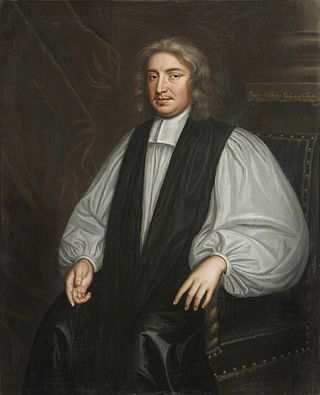
John Wilkins was an Anglican clergyman, natural philosopher, and author, and was one of the founders of the Royal Society. He was Bishop of Chester from 1668 until his death.
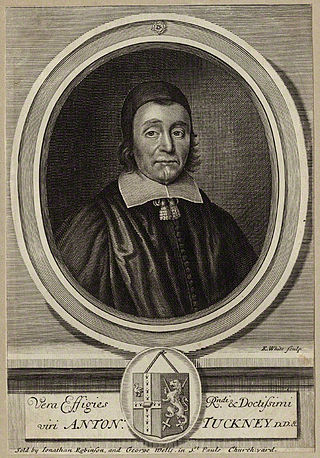
Anthony Tuckney was an English Puritan theologian and scholar.

Richard Knightley was an English lawyer and politician, who was a Member of Parliament, and Sheriff of Northamptonshire in 1626.
Samuel Pullen (1598–1667) was the Church of Ireland archbishop of Tuam in Ireland.
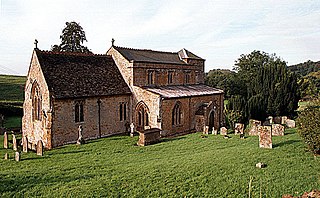
Drayton is a village and civil parish in the valley of the Sor Brook in Oxfordshire, about 2 miles (3 km) northwest of Banbury. The 2011 Census recorded the parish's population as 242.
Francis Marbury (1555–1611) was a Cambridge-educated English cleric, schoolmaster and playwright. He is best known for being the father of Anne Hutchinson, considered the most famous English woman in colonial America, and Katherine Marbury Scott, the first known woman to convert to Quakerism in the United States.
Robert Harris (1581–1658) was an English clergyman, known as a Puritan preacher, member of the Westminster Assembly, and President of Trinity College, Oxford.
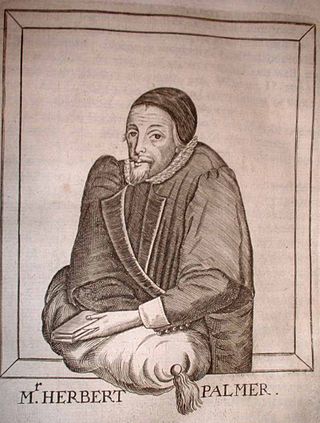
Herbert Palmer (1601–1647) was an English Puritan clergyman, member of the Westminster Assembly, and President of Queens' College, Cambridge. He is now remembered for his work on the Westminster Shorter Catechism, and as a leading opponent of John Milton's divorce tracts.
Stephen Egerton (1555?-1621?) was an English priest, a leading Puritan preacher of his time, who was also active in agitating for reform of the Church of England.

Thomas Case was an English clergyman of Presbyterian beliefs, a member of the Westminster Assembly, where he was one of the strongest advocates of Christian government. Although earlier a strong defender of the Parliamentary cause, he fell out of sympathy with the regicides and became a supporter of the Restoration of the Stuart monarchy.
Nicholas Bownde, Bownd or Bound was an English clergyman, known for his Christian Sabbatarian writings.
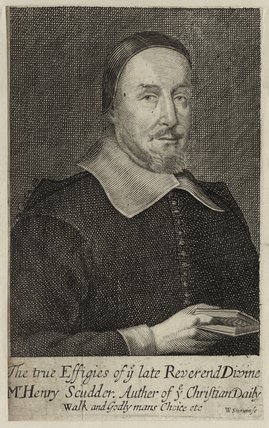
Henry Scudder was an English minister of presbyterian views, known as a devotional writer, and member of the Westminster Assembly.

Hanwell is a village and civil parish in Oxfordshire, about 2 miles (3 km) northwest of Banbury. Its area is 1,240 acres (500 ha) and its highest point is about 500 feet (150 m) above sea level. The 2011 Census recorded the parish's population as 263.

The reign of Elizabeth I of England, from 1558 to 1603, saw the start of the Puritan movement in England, its clash with the authorities of the Church of England, and its temporarily effective suppression as a political movement in the 1590s by judicial means. This led to the further alienation of Anglicans and Puritans from one another in the 17th century during the reigns of King James and King Charles I, that eventually brought about the English Civil War, the brief rule of the Puritan Lord Protector of England Oliver Cromwell, the English Commonwealth, and as a result the political, religious, and civil liberty that is celebrated today in all English speaking countries.

The reign of King James I of England (1603–1625) saw the continued rise of the Puritan movement in England, that began during reign of Queen Elizabeth (1558–1603), and the continued clash with the authorities of the Church of England. This eventually led to the further alienation of Anglicans and Puritans from one another in the 17th century during the reign of King Charles I (1625–1649), that eventually brought about the English Civil War (1642–1651), the brief rule of the Puritan Lord Protector of England Oliver Cromwell (1653–1658), the English Commonwealth (1649–1660), and as a result the political, religious, and civil liberty that is celebrated today in all English speaking countries.

Sir Anthony Cope, 1st Baronet of Hanwell in Oxfordshire, was an English Puritan Member of Parliament.
Richard Greenham (1535?–1594?) was an English clergyman of Puritan views, well known for his strong Puritan doctrine of the Sabbath. His many sermons and theological treatises had a significant influence on the Puritan movement in England.

Sir Anthony Cope of Hanwell, near Banbury, was an English knight, author, principal chamberlain to Queen Catherine Parr, and sheriff of Oxfordshire and Berkshire.

William Whately (1583–1639) was an English Puritan cleric and author.
George Carleton was a lawyer, landowner and Member of Parliament with strong Puritan sympathies. It has been suggested that he was the secret author of the Marprelate tracts, and both he and his third wife were prosecuted for their involvement in the Marprelate controversy. Ordered to appear daily before the Privy Council in April 1589, he died in early 1590 before a decision in the proceedings against him had been reached.












